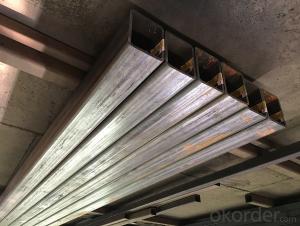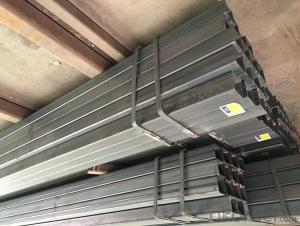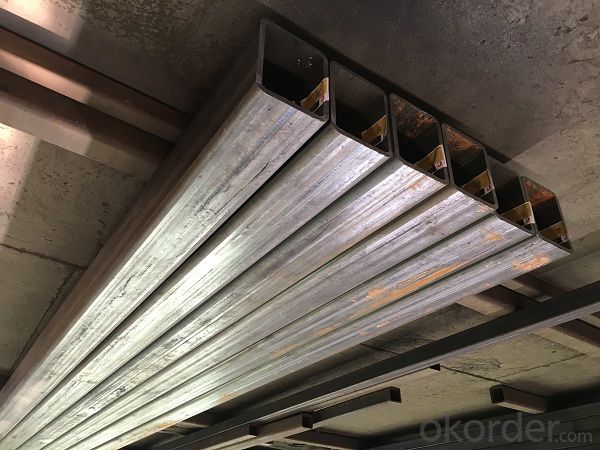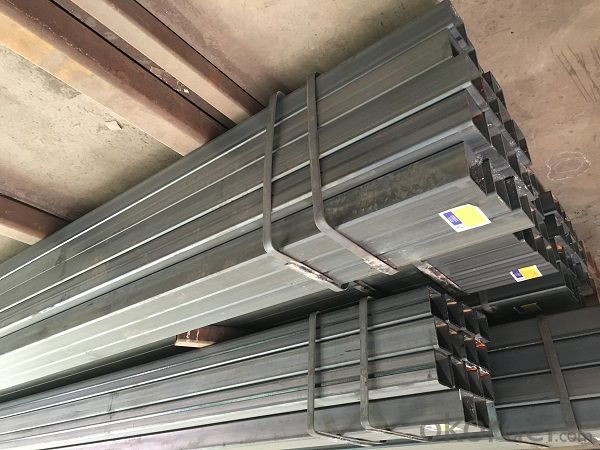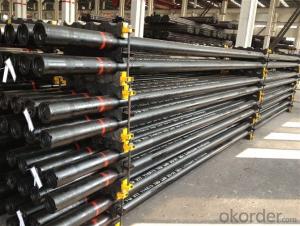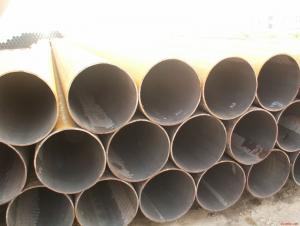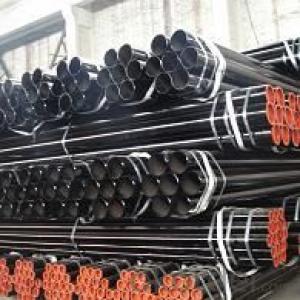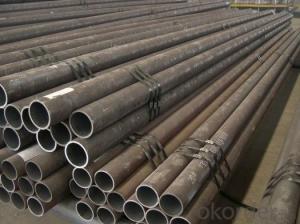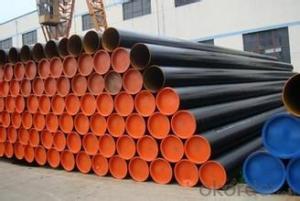The cold formed tube with hot construction
- Loading Port:
- Tianjin
- Payment Terms:
- TT OR LC
- Min Order Qty:
- 15 m.t.
- Supply Capability:
- 15000 m.t./month
OKorder Service Pledge
OKorder Financial Service
You Might Also Like
Specification
1、
The cold formed tube with hot construction
Square tube, square tube is a kind of call and rectangular tube, is equal and not equal to the length of steel pipe. Is the strip through the process of processing roll system. In general is the strip through the demolition of the package, flat, curly, welded to form a circular tube, and then rolled into a square tube and then cut into a square tube and then cut into the required length.
2、 The cold formed tube with hot construction
• High manufacturing accuracy
• High strength
• Small inertia resistance
• Strong heat dissipation ability
3、 The cold formed tube with hot construction
1) Material:(ASTM A 106/A53 GRB.API5LGRB,GB,235B,345B
2) Specification range:OD: 20*30mm----300*500mm 20*20 mm---400*400mm ,WT: 1.5 - 25 mm ,length:3-12m or according to the requirement of clients.
3) Excutive standards:GB,ASME API5L.ASTM A 106/A53,Despite of the above
4) Surface:black lacquered,varnish coating or galvanized.
5) Ends:Beveled or square cut ,painted.
6) Packing:bundles wrapped with strong steel strip,seaworthy packing.
4、Packaging & Delivery
Packaging Details: | seaworthy package,bundles wrapped with strong steel strip |
Delivery Detail: | 15-30days after received 30%TT |
5、 The cold formed tube with hot construction
①How is the quality of your products?
Our products are manufactured strictly according to national and internaional standard, and we take a test
on every pipe before delivered out. If you want see our quality certifications and all kinds of testing report, please just ask us for it.
Guaranteed: If products’ quality don’t accord to discription as we give or the promise before you place order, we promise 100% refund.
②How about price?
Yes, we are factory and be able to give you lowest price below market one, and we have a policy that “ for saving time and absolutely honest business attitude, we quote as lowest as possible for any customer, and discount can be given according to quantity”,if you like bargain and factory price is not low enough as you think, just don’t waste your time.Please trust the quotation we would give you, it is professional one.
③Why should you chose us?
Chose happens because of quality, then price, We can give you both.Additionally, we can also offer professional products inquiry, products knowledge train(for agents), smooth goods delivery, exellent customer solution proposals.Our service formula: good quality+good price+good service=customer’s trust
SGS test is available, customer inspection before shipping is welcome, third party inspection is no problem.
6、 The cold formed tube with hot construction
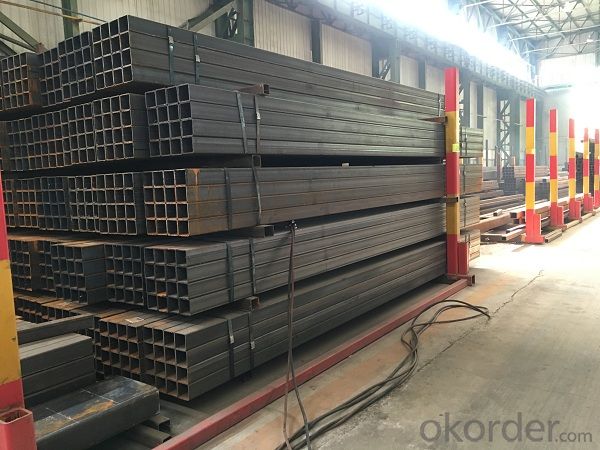
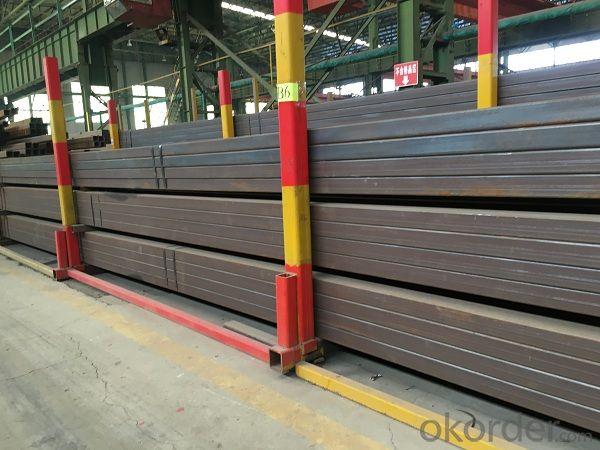
- Q: How do steel pipes perform in high-altitude applications?
- Steel pipes perform well in high-altitude applications due to their strength, durability, and resistance to extreme weather conditions. They can withstand the low temperatures and high winds typically found at high altitudes, making them a reliable choice for various industries such as oil and gas, construction, and infrastructure development. Additionally, steel pipes have the ability to maintain their structural integrity under high pressure, making them suitable for transporting fluids and gases at high altitudes.
- Q: Can steel pipes be used for conveying food and beverages?
- Steel pipes can be used for conveying food and beverages, but certain precautions need to be taken to ensure their safety and suitability for this purpose. Firstly, it is important to choose food-grade stainless steel pipes that are specifically designed for handling food and beverage products. These pipes are made from high-quality stainless steel that is resistant to corrosion and does not leach harmful substances into the food or beverage. Secondly, the pipes should be properly cleaned and sanitized before and after each use to maintain hygiene standards. Regular cleaning and maintenance will prevent the accumulation of bacteria or contaminants that could potentially contaminate the food or beverage being transported. Additionally, it is crucial to consider the compatibility of the food or beverage with the steel pipes. Certain acidic or corrosive substances may react with the steel, causing contamination or compromising the integrity of the pipes. In such cases, alternative materials like food-grade plastic or rubber may be more suitable. Overall, steel pipes can be used for conveying food and beverages, but it is essential to ensure the use of food-grade stainless steel pipes, proper cleaning and sanitization, and compatibility with the specific food or beverage being transported. Following these guidelines will help maintain the safety and quality of the food or beverage during transportation.
- Q: How are steel pipes recycled?
- Steel pipes are recycled through a multi-step process that involves collection, sorting, cleaning, and melting. First, the used steel pipes are gathered from various sources such as construction sites or industrial facilities. Then, they are sorted based on their size, shape, and quality. Next, any contaminants or coatings are removed from the pipes through cleaning and stripping processes. Finally, the cleaned pipes are melted down in a furnace, and the molten steel is formed into new pipes or other steel products. This recycling process reduces the demand for new raw materials and helps conserve energy and resources.
- Q: How are steel pipes connected to other plumbing components?
- Steel pipes are commonly connected to other plumbing components through various methods, depending on the specific application and requirements. The most common methods of connecting steel pipes to other plumbing components include threading, welding, and using mechanical fittings. Threading is a process where the ends of the steel pipes are cut and grooves are created on the outer surface to form a threaded connection. This allows the pipes to be screwed into fittings such as elbows, tees, or couplings. Threaded connections are often used in smaller diameter pipes and low-pressure applications. Welding is another commonly used method to connect steel pipes. It involves heating the ends of the pipes and joining them together by melting the metal at the point of contact. This creates a strong and permanent connection. Welded connections are often used in larger diameter pipes and high-pressure applications. Mechanical fittings are another popular option for connecting steel pipes. These fittings are designed to be easily installed without the need for welding or threading. They typically consist of two parts – a compression ring and a nut. The compression ring is placed over the pipe, and the nut is tightened, compressing the ring onto the pipe and creating a secure connection. Mechanical fittings are commonly used in both residential and commercial plumbing systems. In addition to these methods, other connection techniques such as flanges, grooved couplings, and soldering can also be used to connect steel pipes to other plumbing components, depending on the specific needs of the system. Overall, the method used to connect steel pipes to other plumbing components depends on factors such as the size of the pipes, the pressure of the system, the type of fluid being transported, and the specific requirements of the project. It is important to choose the appropriate method and ensure that the connections are properly installed to ensure the integrity and efficiency of the plumbing system.
- Q: How are steel pipes used in the construction of chemical plants?
- Steel pipes are commonly used in the construction of chemical plants for various purposes. They are primarily utilized for transporting fluids and gases, such as chemicals, water, and steam, throughout the facility. These pipes are selected for their durability, strength, and resistance to corrosion, which is crucial in an environment where exposure to harsh chemicals is common. Steel pipes are also used for structural support, such as in the construction of platforms, walkways, and pipe racks. Additionally, they can be employed for ventilation and exhaust systems, as well as for fire protection systems in chemical plants. Overall, steel pipes play a vital role in ensuring the safe and efficient operation of chemical plants.
- Q: Can steel pipes be used for structural applications?
- Yes, steel pipes can be used for structural applications.
- Q: What are the different types of steel pipe hangers?
- There are several different types of steel pipe hangers that are commonly used in various industries and applications. These hangers are designed to support and secure pipes, ensuring proper alignment and preventing sagging or movement. 1. Clevis Hangers: Clevis hangers consist of a clevis, which is a U-shaped metal bracket, and a threaded rod that connects the clevis to the supporting structure. This type of hanger allows for vertical adjustment and is often used in suspended piping systems. 2. Split Ring Hangers: Split ring hangers are circular metal rings that are split on one side. They can be easily opened and closed around the pipe, providing a secure hold. Split ring hangers are commonly used for suspending horizontal pipes. 3. Beam Clamps: Beam clamps are designed to attach to structural beams or channels, providing a secure mounting point for pipe hangers. They come in various designs, including top flange, bottom flange, and side mount, to accommodate different installation needs. 4. Swivel Hangers: Swivel hangers are used to support pipes that may experience thermal expansion or contraction. These hangers allow the pipe to move horizontally while still providing support and preventing excessive stress on the connections. 5. Riser Clamps: Riser clamps are used to support vertical pipes or risers. They typically consist of a metal band that wraps around the pipe and a threaded rod that connects the band to the supporting structure. 6. Pipe Roller Supports: Pipe roller supports are used in applications where pipes need to move horizontally due to expansion or contraction. These hangers consist of a series of rollers that allow the pipe to move freely while still providing support. 7. Pipe Saddles: Pipe saddles are U-shaped brackets that wrap around the pipe, providing support on both sides. They are often used in applications where pipes need to be secured to walls or other structures. These are just a few examples of the different types of steel pipe hangers available. The specific type of hanger used will depend on factors such as pipe size, weight, location, and required movement allowance. It is important to choose the appropriate hanger for each application to ensure proper support and functionality of the piping system.
- Q: Are steel pipes suitable for solar power plants?
- Yes, steel pipes are suitable for solar power plants. Steel pipes are often used in the construction of solar power plants due to their durability, strength, and resistance to corrosion. They can be used for various purposes in a solar power plant, including the transportation of fluids such as water or heat transfer fluids, as well as providing structural support for solar panels and other equipment. Steel pipes are capable of withstanding high temperatures and pressure, making them ideal for the efficient operation of solar power plants. Additionally, steel pipes are readily available and cost-effective, making them a popular choice in the construction of solar power plants.
- Q: What is the hardness of steel pipes?
- The hardness of steel pipes varies depending on the specific grade and manufacturing process used. However, steel pipes are generally known for their high hardness and durability, as they are often designed to withstand heavy loads, abrasive environments, and high-pressure conditions.
- Q: What are the different grades of steel used in pipes?
- There are several different grades of steel used in pipes, including carbon steel, alloy steel, and stainless steel. Carbon steel pipes are commonly used for general-purpose applications, while alloy steel pipes are often used in high-temperature and high-pressure environments. Stainless steel pipes are known for their corrosion resistance and are frequently used in industries such as chemical, food processing, and pharmaceuticals.
Send your message to us
The cold formed tube with hot construction
- Loading Port:
- Tianjin
- Payment Terms:
- TT OR LC
- Min Order Qty:
- 15 m.t.
- Supply Capability:
- 15000 m.t./month
OKorder Service Pledge
OKorder Financial Service
Similar products
Hot products
Hot Searches
Related keywords
